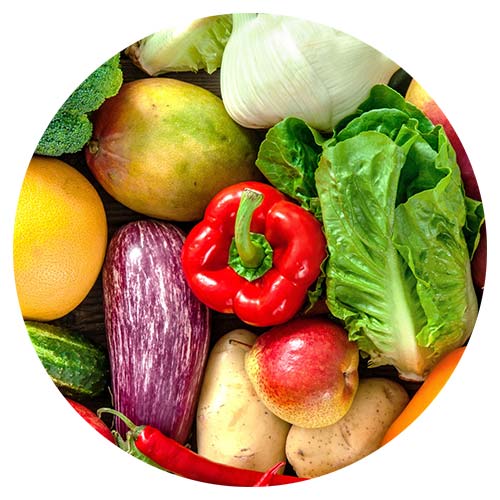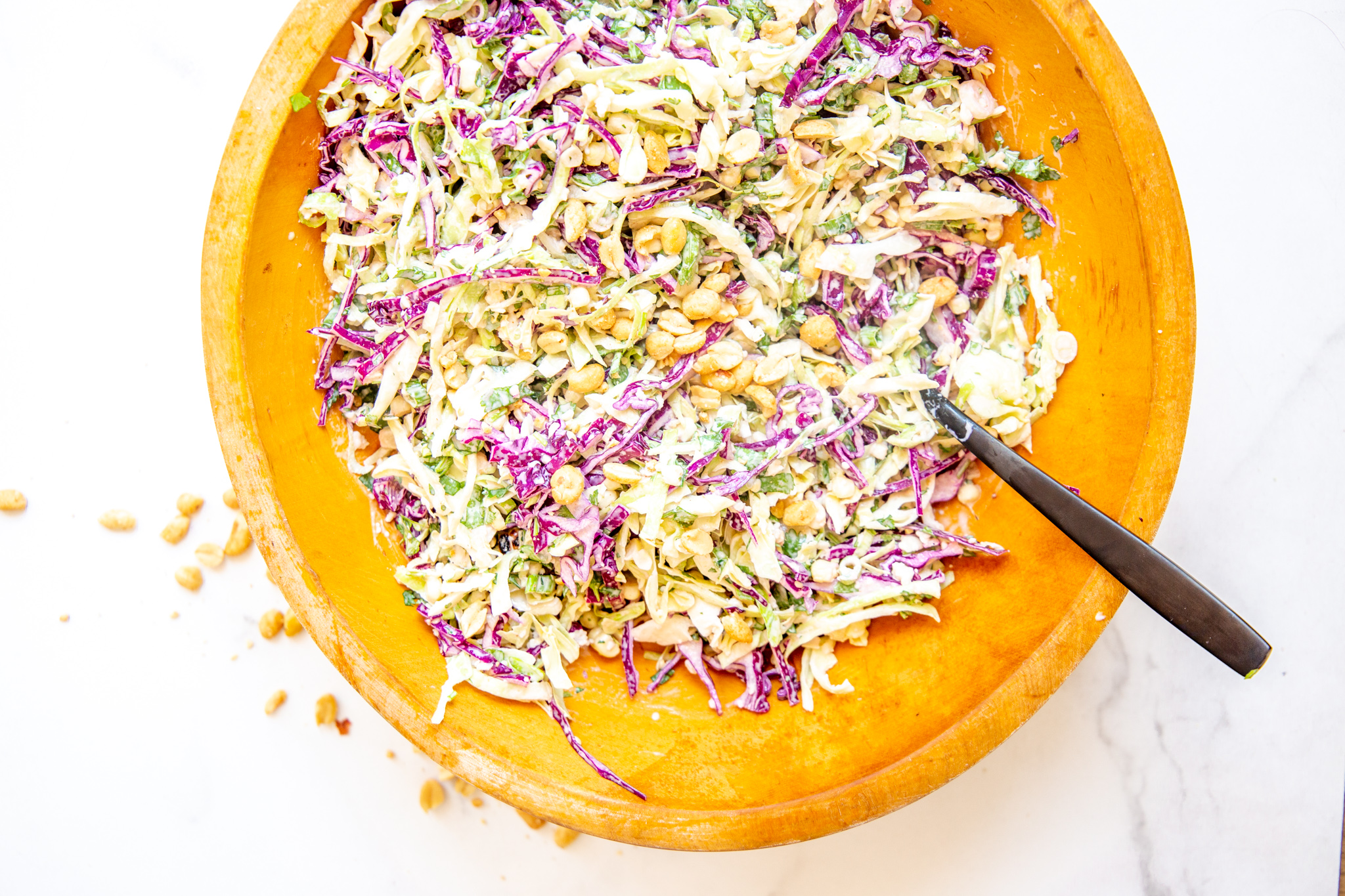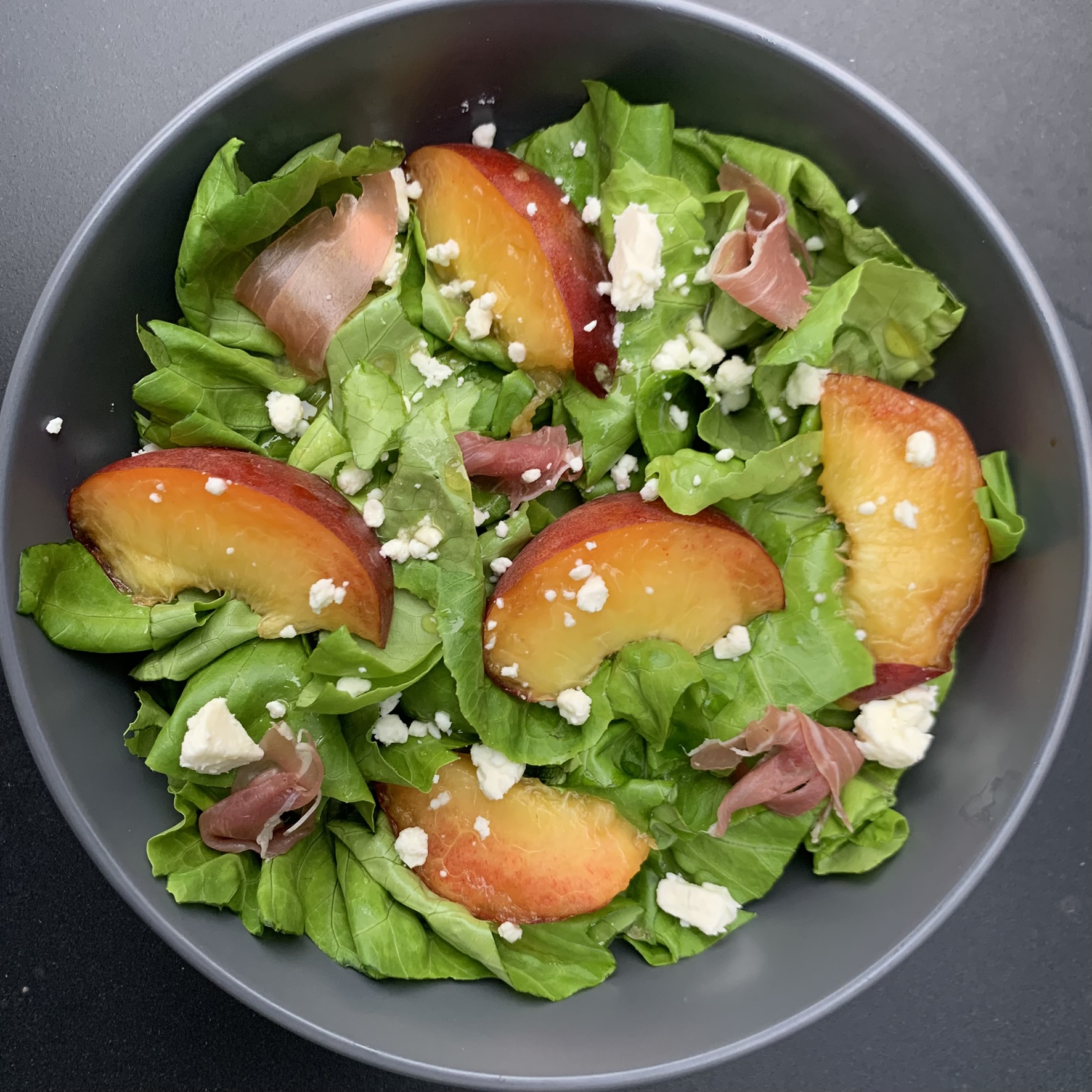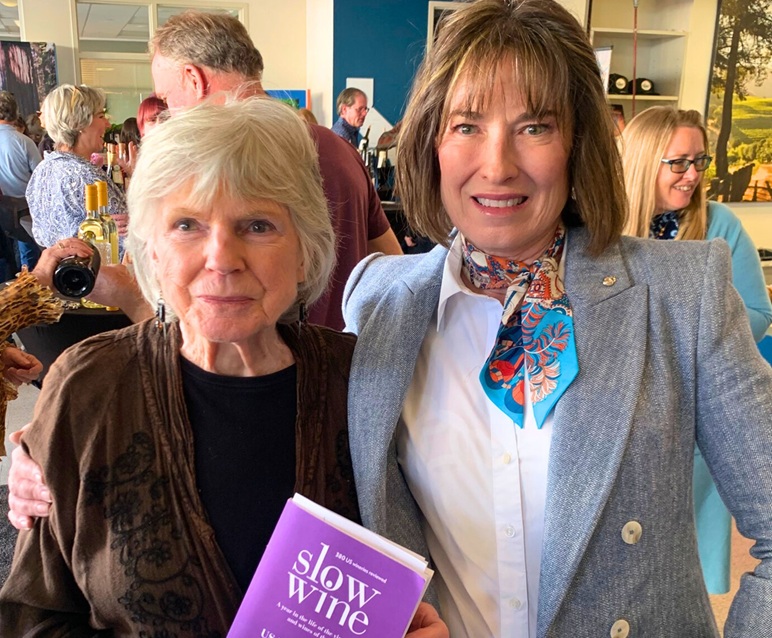How one foodie couple built a thriving heirloom vegetable farm through teamwork and a shared love of gardening

Cottonwood Farm in Witter Springs is an A to Z of vegetables. Somewhere between a hobby garden and a full-scale farm, only about half of the three-acre property is under cultivation, but it bursts with life.
The area immediately behind the house features raised beds that are thick with heirloom leafy greens: spinach, bok choy, lola rosa, Napa cabbage, friseé, escarole, swiss chard, collard greens, salanova, butter lettuce, ruby sky lettuce, curly mustard and Russian kale. Tomato vines climb trellises around the perimeter. A few steps further into the yard is a sizeable fenced field that has alternating rows of rhubarb, radicchio, red chioggia beets, chicory, Chinese red radishes, white alpine Korean radishes, daikon, golden beets, broccoli, carrots, cauliflower, peppers, cucumbers, winter squash, Tokyo turnips, and baby fennel. Marigolds anchor the ends of each row, to keep pests away. In between the beds and the field are plots containing exotic melons, including genios and Japanese silver yamatos. To the left of the house is a lettuce nursery, where hundreds of nascent shoots live for their first four weeks, protected from the elements, before they are transplanted into the raised beds.
Then there are the critters. To the right of the veggie garden is a corral with four adorable goats—the resident lawn mowers—and facing it is an enclosure with free-range chickens—mostly hens, but also three rather vocal roosters. A frisky German shepherd zooms to-and-fro, stopping to sniff the goats periodically.
One of the fine-feathered hens struts past as we peer over the fence into the chicken enclosure. “That’s Henrietta,” says Joel Costa, who co-owns the farm with his husband, Robert Brust. “She’s a beauty.”
If you shop at Lake County farmers’ markets, you may recognize the couple. Regular vendors for the last couple of years at the Kelseyville and Middletown markets, they are perhaps best known for their hugely popular grab-and-go mixed lettuce bags. But they also sell whole heads of lettuce, farm fresh eggs, and whichever varieties of their heirloom vegetables are in season at the moment.
Their mutual passion for cultivation, along with Brust’s culinary experience and Costa’s flair for marketing, have made Cottonwood Farm a success in a surprisingly short time.
Unlike some of their Witter Springs neighbors, who have farmed or ranched their land for decades, Brust and Costa are newer to the area—but not new to growing vegetables. They were both avid gardeners in their youth, and it became a shared hobby not long after they first met in the East Bay in the early 90s.
“Robert used to garden when he was younger, at home in New York, and I used to garden either at my grandparents’ place or the house that I grew up in the East Bay,” Costa, who is a vegetarian, explained. “My grandparents had the strangest little plot of land you’ve ever seen. The place was literally like a little mini farm. They had grapes and fruit trees and lots of animals. So I grew up with that, and learned from my grandfather how to tend to the vegetables and other things.”
“So when we first got together we both shared a love of gardening,” he continued. “We sought out a garden allotment in San Francisco when we moved there in the early 2000s, and were actually on a waitlist for years. We ended up getting a plot in Ogden Terrace Community Garden in Bernal Heights in 2008, then in 2017 moved to Dearborn Garden in the Mission District.”
For many years they grew produce as a hobby, while Brust worked first as a chef at many of the top restaurants in the city, then as a catering chef. Costa worked in hospitality at various well-known hotels, first as a manager and later in sales and marketing.
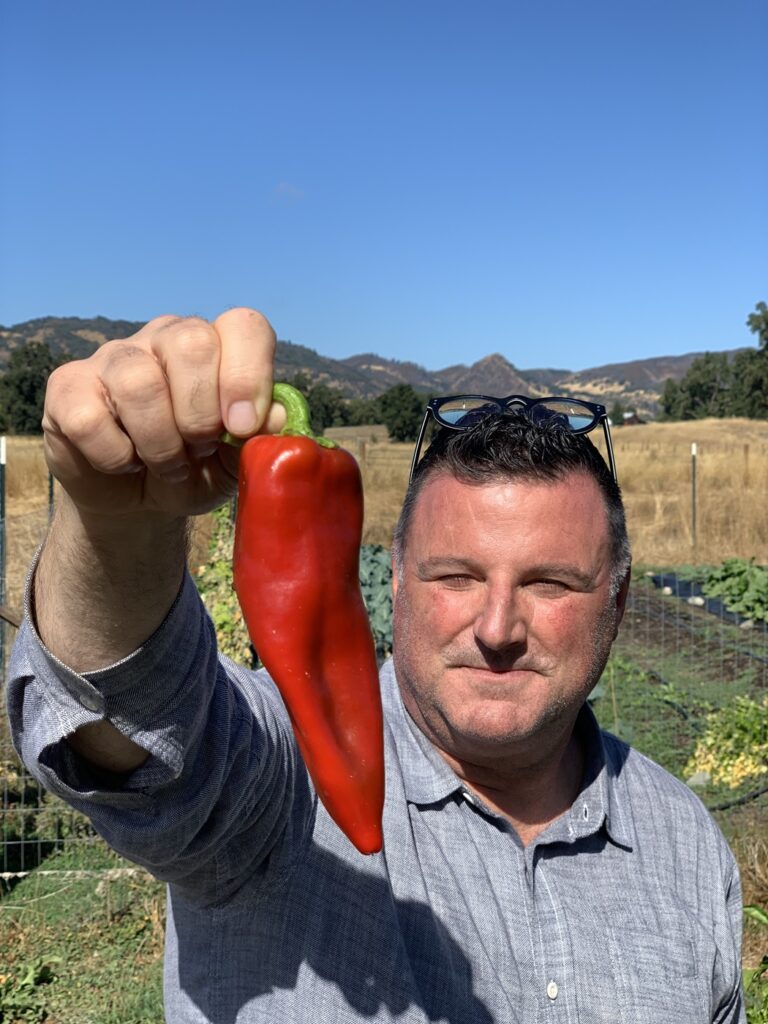
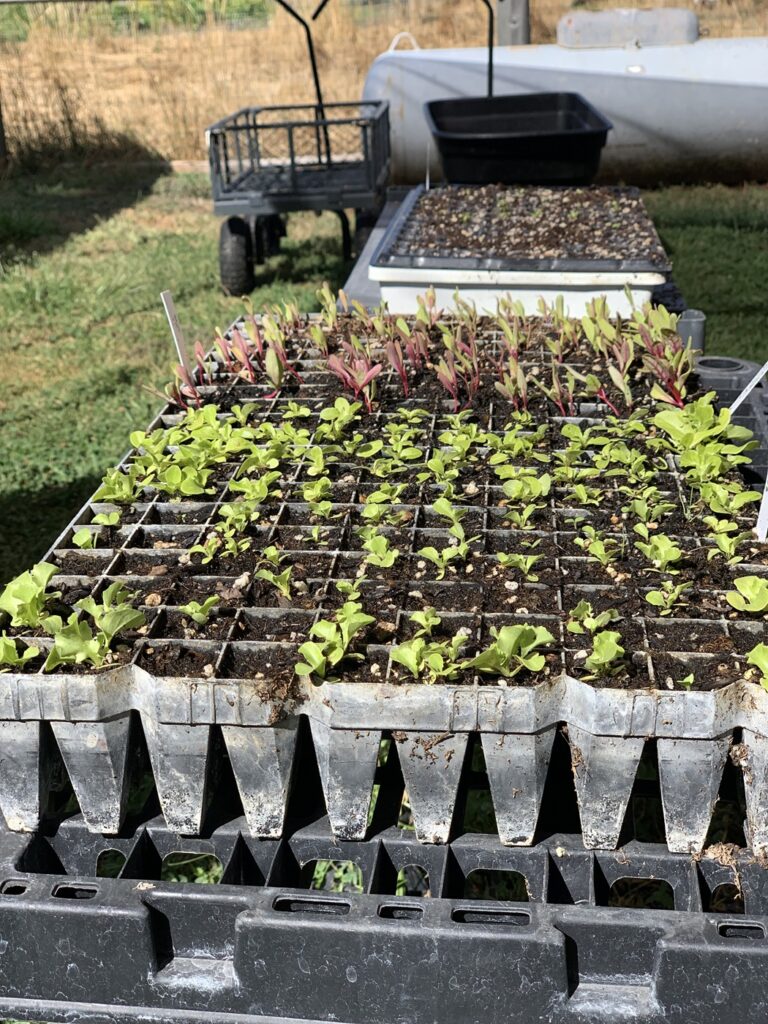
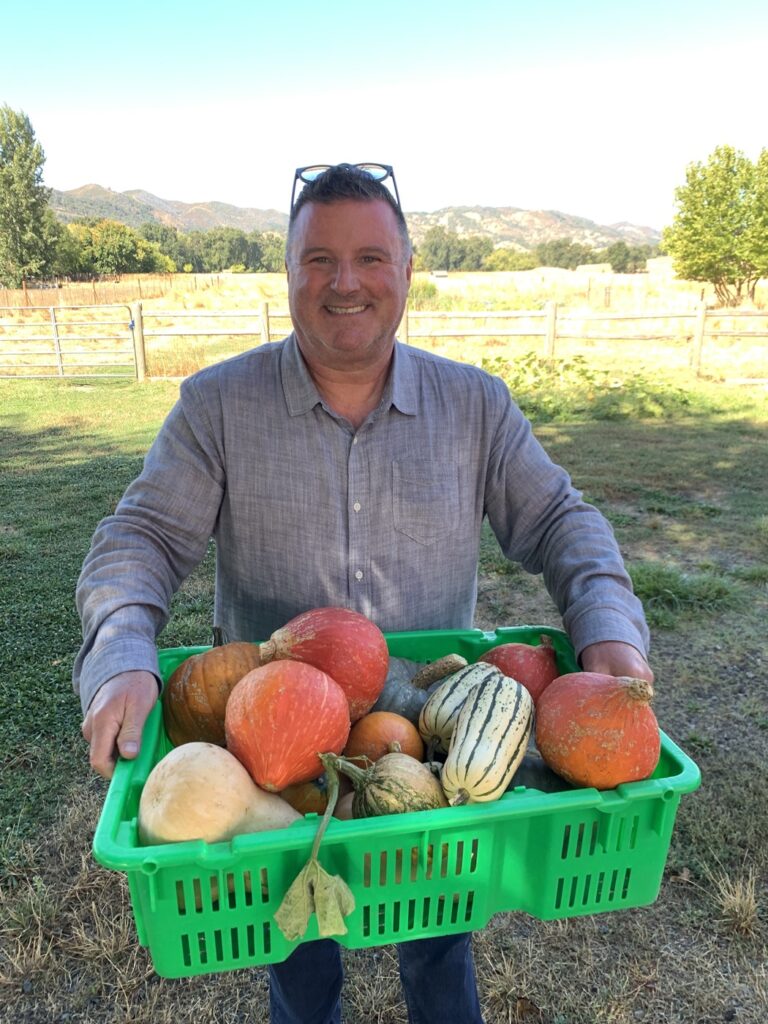
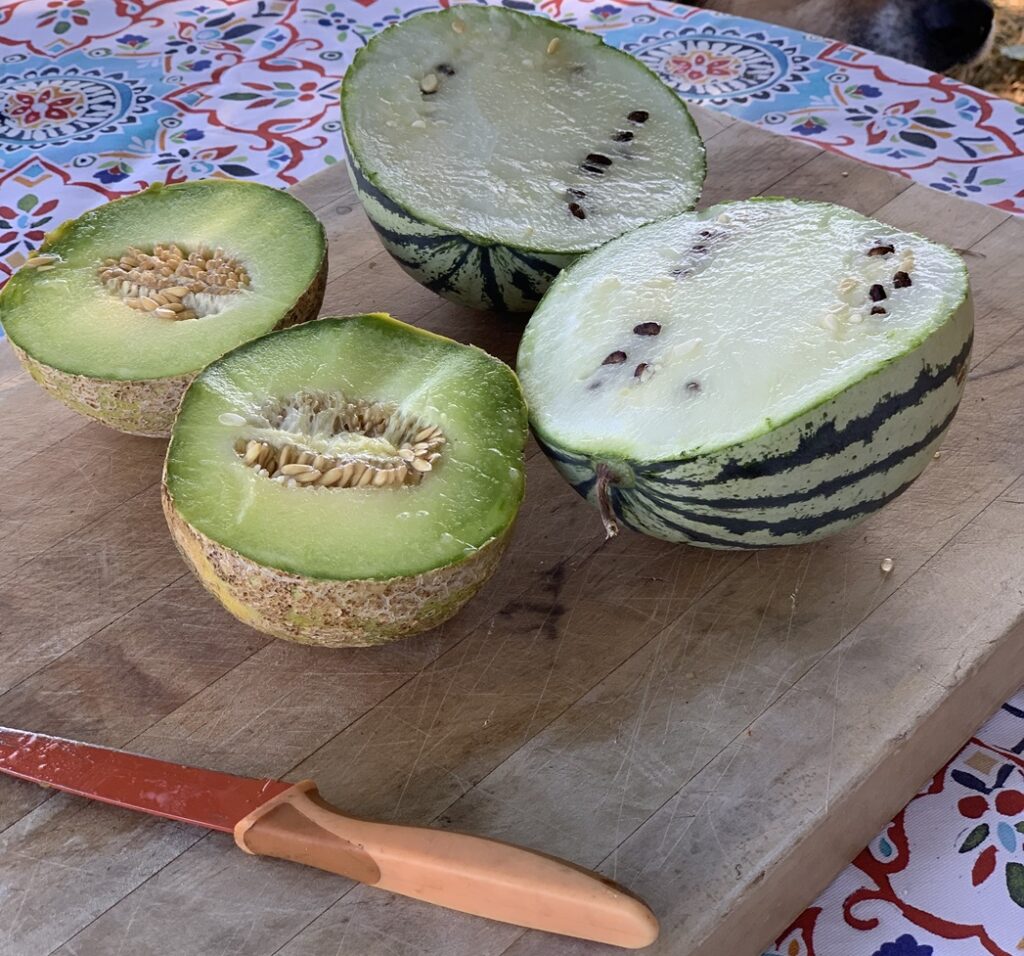
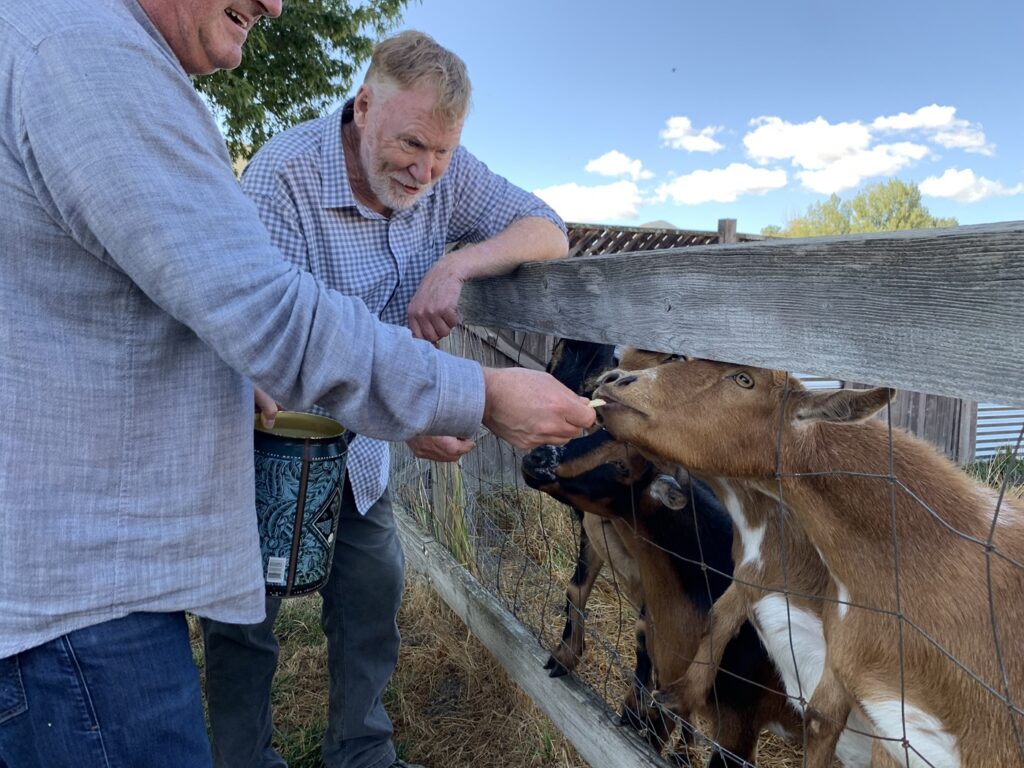
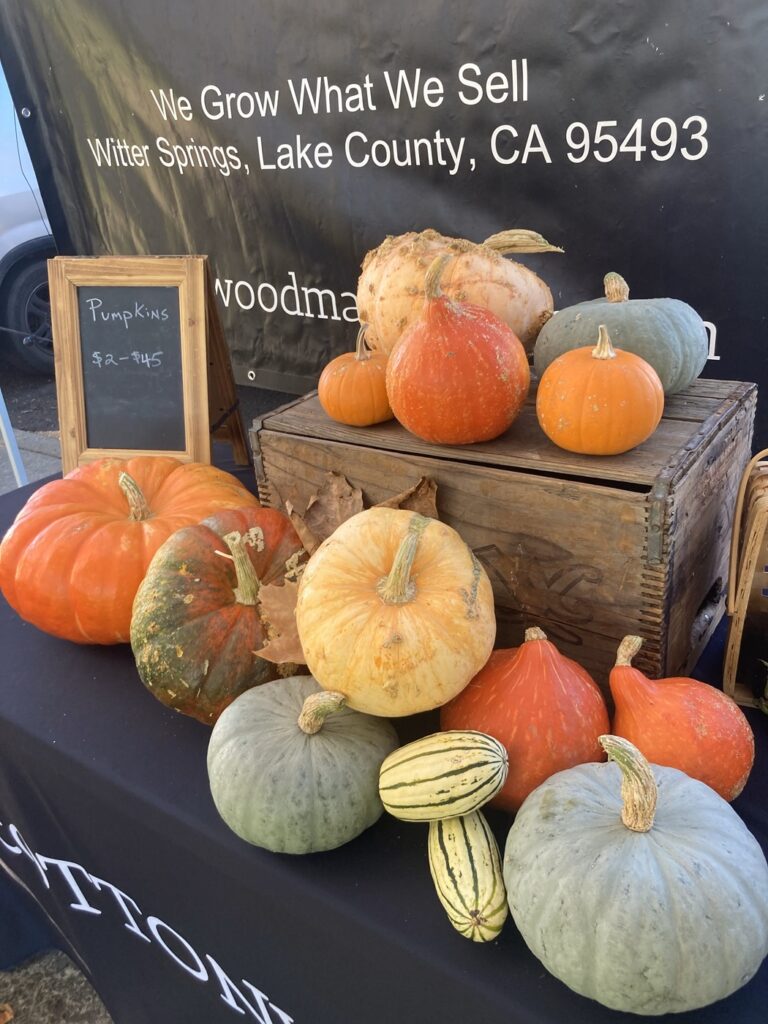
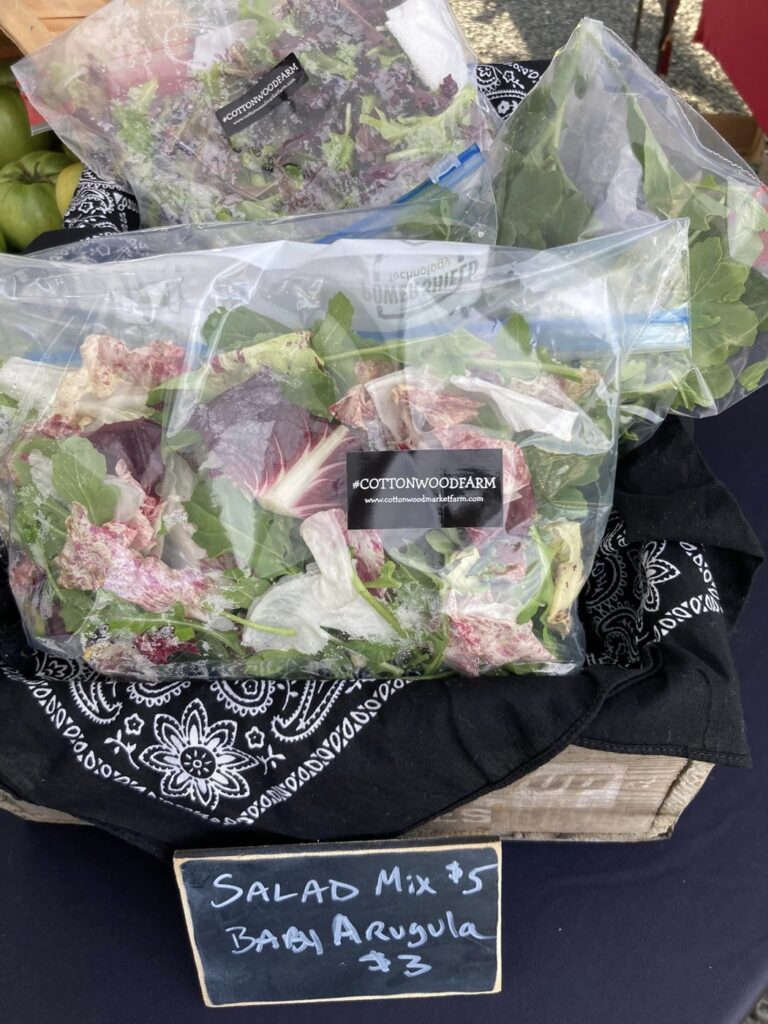
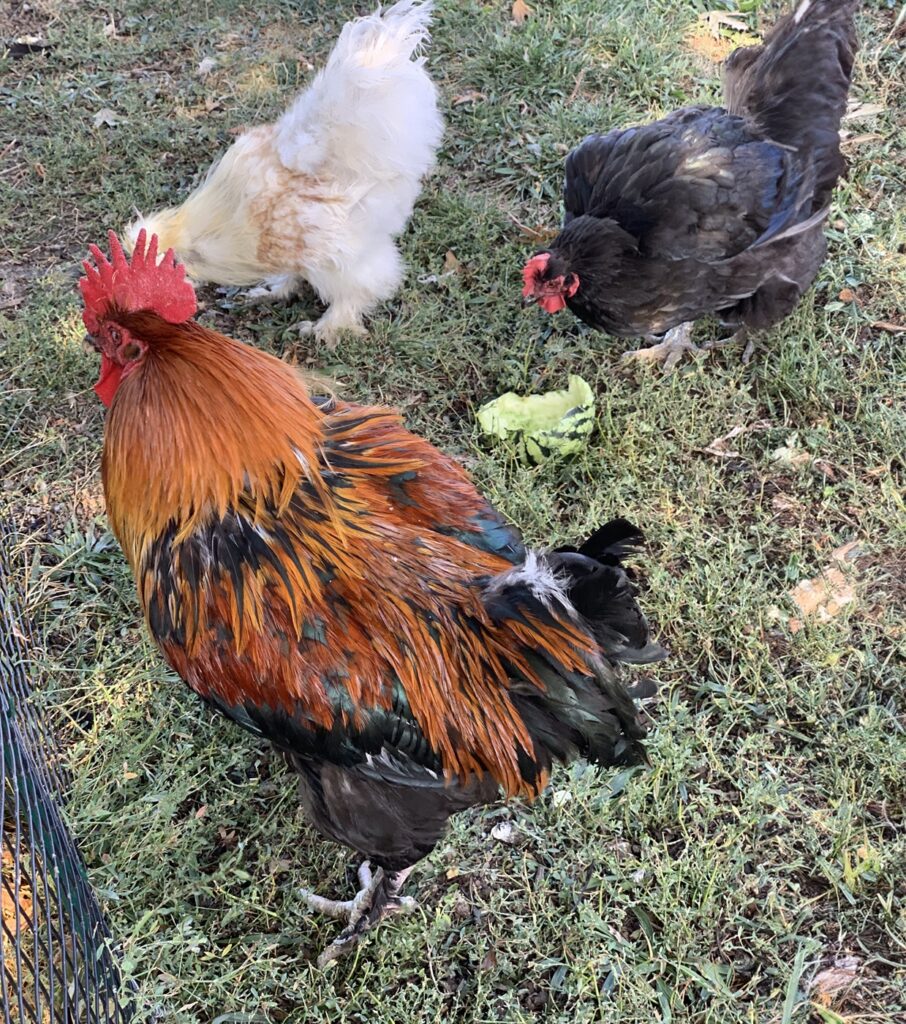
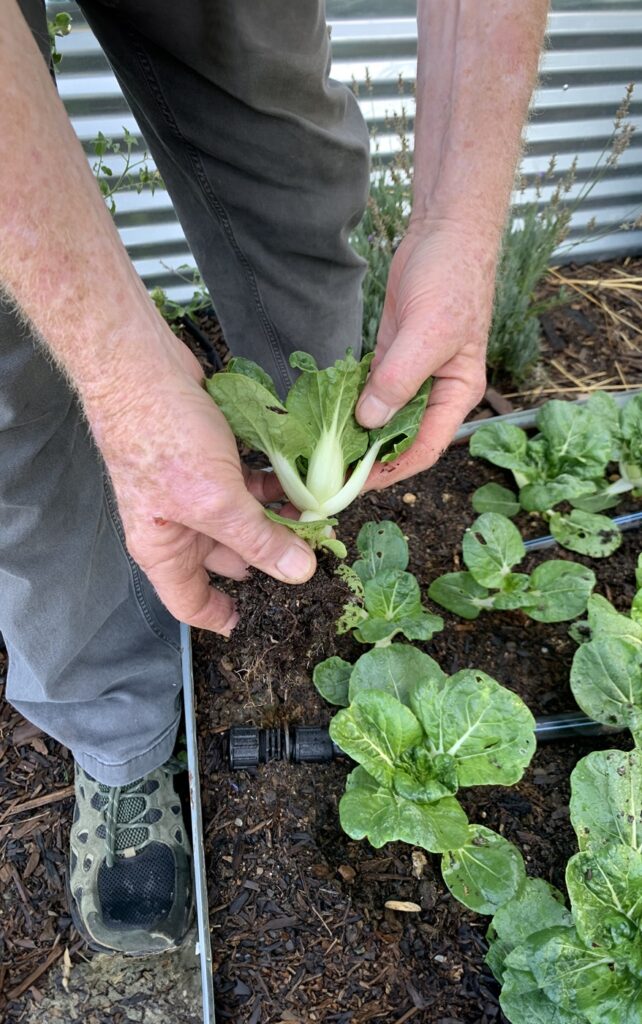
“We would grow our own vegetables, and make them a part of what we were eating and what we were entertaining with – that sort of thing,” Costa said. “It was a lot of work. I would have to get up at five o’clock in the morning to go over there and water, and then go to work. Sometimes in the hot summer months I’d have to water mid-day again.”
But they both had a vague idea that eventually they wanted to take growing produce to the next level – and do it outside of the city.
“This whole farm thing was on the back burner in my head,” Brust said. “It was a little dream that kept floating in and out, because I’m a chef and I like to garden. We decided we wanted to basically have a place outside of San Francisco to go to on the weekends where we would have enough land to grow things. Sort of a vacation home that would eventually become a retirement home.”
They initially started looking at properties in Sonoma County, but on the recommendation of a friend at Peace and Plenty Farm in Kelseyville, they expanded their search to Lake County. After looking at several places, they settled on the property that would become Cottonwood Farm, which had previously been a horse ranch.
They closed the deal in late 2019, and named the property after the giant old cottonwood trees that dot the land. When the pandemic hit shortly thereafter, Brust lost his job and moved up to the farm to quarantine. He watched from afar as the Bay Area’s restaurant industry slowly imploded over the course of the year, and decided that his timeline to become a full-time farmer might as well shift from “sometime in the future” to “now.”
“We bought the house right before COVID, then my career disappeared,” Brust explained. “I was a caterer in San Francisco, and there were just thousands and thousands of us out of work. A lot of the companies I was working for, they didn’t even make it to the other side.”
“We didn’t know we were going to start the farm as early as we did, but once the pandemic hit, it became ‘what do we do now?’ Costa added. “Robert made the decision not to go back to work as a chef and to stay up here full-time.”
So the two of them set about building their farm. Brust took the lead as the full-time, hands-on half of the pair, while Costa co-managed from San Francisco during the week—where he still works as the director of sales and marketing at 1 Hotel—and onsite at the farm on weekends.
Despite their combined gardening experience, they found that organic farming was not always easy.
“There has been a lot of trial and error,” Brust admitted. “My aunt Edith gave me a stack of organic gardening magazines when I was 14 or 15, and I stick to those principles, but we’ve also been learning a lot as we go along.”
With input from their farm manager/partner Owen, they tried different methods of eradicating pests, building up the soil quality, and attracting beneficial insects like bees, ladybugs and praying mantises. Since they were committed to avoiding pesticides and fertilizers, they eventually settled on neem oil and diatomaceous earth to repel unwanted bugs, and the use of aromatics, native flowers and perennials to encourage the good critters.
“There has been a lot of trial and error.”
“Owen brings a lot of knowledge to the table to help us out,” Brust said. “When we encountered things like the little beetles, he suggested the diatomaceous earth. I had never heard of it, but he was like, ‘Yeah, that should work.’”
“We’re still trying to fight off the gophers, but the flooding last winter seems to have diminished their population,” Costa added. “Aside from cats and foxes and a few other things, we don’t really have many other predators. We’re pretty lucky that way. The dog guards the farm, but we do lock up the chickens at night.”
They also decide on a combination of compost and other natural products to help enhance their soil, feed the animals, and keep the farm a zero-waste operation.
“Since we have very heavy clay soil, we use agricultural gypsum to help loosen it and break it up,” Brust said. “This releases the nutrients that are already in there. And we bring in mushroom compost from Cold Creek Compost in Potter Valley, plus we make some ourselves. The scrap waste from our crops goes into our compost pile, as do scraps from our personal kitchen. The compost provides additional nutrients to the soil, and the chickens eat it too. We just try to create ways of repurposing everything.”
Once the vegetables took root, Costa put his marketing expertise to work and started creating a brand identity. He designed a website, took photos, created social media accounts and hashtags, and began the process of registering as a vendor at Lake County farmers markets.
They started selling their produce at farmers markets in early 2021, almost as soon as they had their first harvest, and did well from day one. Early on they zeroed in on the idea of selling bagged lettuce mixes, partly because lettuce was their specialty, and partly based on feedback from customers.
“…we decided to focus on it, and really just be ‘the lettuce people.”
“We would always sell out if we had lettuce,” Costa said. “So we started listening to customers and understanding what they liked, which was often fresh salads and that sort of thing. We learned that
these people were generally older or single, they didn’t want large amounts of food, and they didn’t want uneaten food to rot. So we came up with the idea of bagging it and having it washed, mixed and ready to go. It took off and we would sell out of it. Then people started texting us, asking us to hold a bag for them, that sort of thing.
So we decided to focus on it, and really just be ‘the lettuce people.’” “We do try to have the salad mix available every single week, as well as head lettuce and things like that,” he added. “We grow really nice varieties that you don’t see in the grocery stores.”
As for the other types of heirloom vegetables they offer, they say it’s all about experimenting and seeing what customers respond to.
“We just grow things that we love, and we also try to grow things that are different that you’re not going to see everywhere,” Costa said. “Then occasionally, we try something really odd, and it either sells or it doesn’t, like the pink celery. They actually grow pink celery in the rooftop garden at the hotel that I work at, and I was like ‘I’ve never seen it before. I have to have it!’ We finally grew it here – it took two years, but we did it!”
They have found that people are pretty receptive to whatever they grow, because their customers – like Brust and Costa themselves – like to try new things in the kitchen.
“We tend to find a lot of our customers really are very creative cooks,” Costa said. “One lady is always sending us pictures of the amazing things she makes with our vegetables. We’ve had other customers bring us things that they make with our vegetables, too. One did a spicy onion jam that we still have in our fridge. It’s great.”
In addition to Cottonwood Farm, Brust and Costa now have Cottonwood Kitchen, which has allowed Brust to start cooking again commercially. Through this part of the business the couple sells fun and tasty gourmet dips, spreads, soups, sauces, and condiments.
“It’s just little deli tubs now, then we’re going to move to little premade salads,” Brust said. “We’re planning to make our own kimchi too this year. We’ll see where we go from there. I feel really good about it.”
Clearly the sky is the limit for both Cottonwood Farm, and for Brust and Costa personally. Though they’ve been together for 32+ years, they clearly enjoy being around each other. Their conversation flows easily and is punctuated by constant smiles and laughter. Their teamwork in life and in business seems to be the essence of their success.
“We have always done projects together,” Costa said. “From gardening, to being ‘the hostess with the mostest’ and having people over to the house for Thanksgiving dinner, to the farm—we just enjoy doing things with each other, and sharing it with others.”
You can buy Cottonwood Farm and Cottonwood Kitchen products at the Kelseyville Farmers Market (Saturday), the Middletown Farmers Market (Friday), and at Nature’s Food Center in Lakeport. For more information, visit cottonwoodmarketfarm.com.
